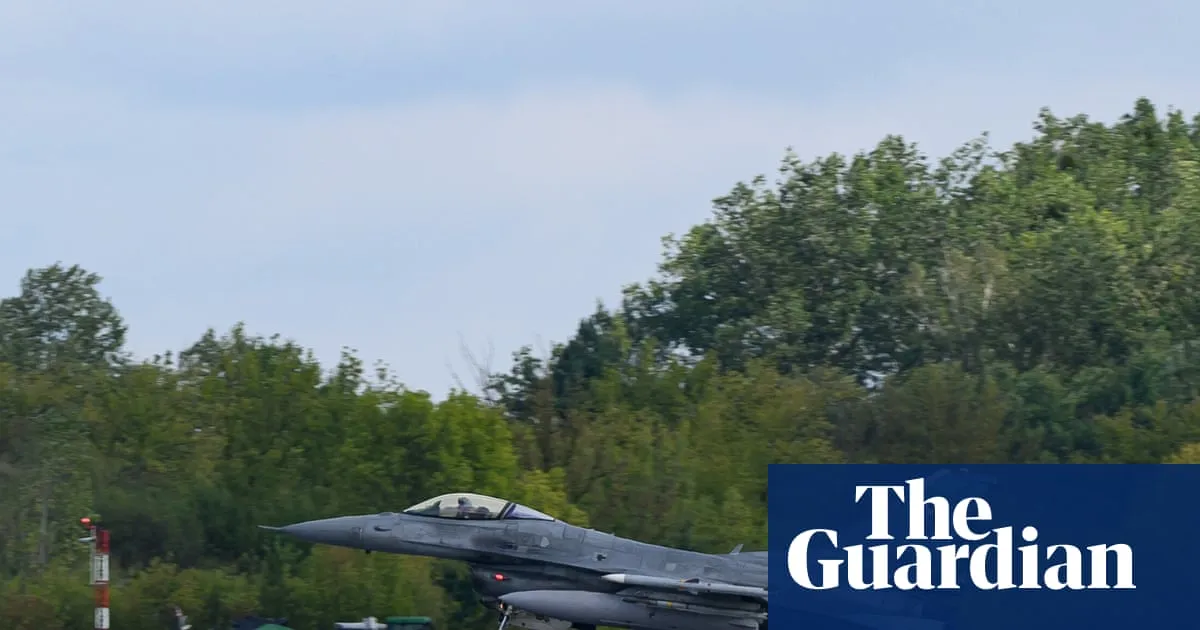
Romania has become the latest NATO member state to report a significant drone incursion into its airspace, coinciding with Poland's heightened military readiness in response to recent Russian drone strikes just across the border in Ukraine. On Saturday, Romania's defense ministry confirmed that its airspace was breached by a drone during a Russian attack targeting infrastructure in Ukraine. The situation escalated as Romania scrambled two F-16 fighter jets to monitor the unfolding events.
The Romanian military's swift response included deploying the two F-16 fighter jets late on Saturday, which successfully detected a drone within national airspace. The jets tracked the unmanned aerial vehicle until it vanished from radar near the Romanian village of Chilia Veche. This incident underscores the growing concern among NATO member states regarding the potential spillover effects of the ongoing conflict in Ukraine.
Ukrainian President Volodymyr Zelenskyy has voiced alarm over Russia's expanding drone operations, urging the West to implement tougher sanctions and enhance defense cooperation. Zelenskyy characterized the latest drone incursions as a clear escalation of the war by Russia, emphasizing that the Russian military is well aware of their drone's flight paths and operational capacities. He asserted the need for fresh sanctions against Russia and called for a collective defense initiative, warning against waiting for more severe attacks involving 'shaheds' and ballistic missiles before taking action.
In Washington, U.S. President Donald Trump indicated a willingness to impose major sanctions on Russia, contingent upon all NATO nations reaching a consensus and ceasing their purchases of Russian oil. This statement came amid Poland's own military preparations, as the country, along with its NATO allies, deployed helicopters and aircraft in response to the Russian drone strikes near its border. The Polish military command announced that their air defense and radar reconnaissance systems were operating at the highest level of alert due to the drone threat.
Following the drone incursions, Polish Prime Minister Donald Tusk announced that the heightened alert status had been lifted, though he urged continued vigilance. The situation remains tense, particularly after Poland reported that nearly 20 Russian drones had penetrated its airspace earlier in the week. While Russia denies targeting Poland, several European nations, including France, Germany, and Sweden, have increased their military support for defending Polish airspace.
U.S. Secretary of State Marco Rubio expressed concern regarding the Russian drone incursions into Polish airspace, questioning whether the drones were specifically aimed at Poland. He acknowledged that the launches were intentional but highlighted the ambiguity surrounding their targeted nature. If these incursions are proven to be deliberate, it could lead to significant escalations in the conflict.
In a related incident, Russian officials reported that a Ukrainian drone had struck one of Russia's largest oil refining complexes, located approximately 1,400 kilometers (870 miles) from the frontline. The drone attack resulted in a fire and minor damage to the facility, which is owned by the Russian oil company Bashneft and situated near the central city of Ufa. A source from Ukraine's military intelligence agency claimed responsibility for the operation, highlighting Ukraine's ongoing efforts to undermine Russia's ability to finance its military operations through fossil fuel exports.
As tensions continue to escalate in Eastern Europe, the situation remains fluid, with both NATO and Russian actions closely monitored by international observers. The ramifications of these drone incursions could have significant implications for regional stability and international relations.